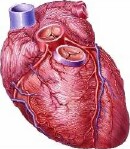New Computerized Scans Effective for Spotting Clogged Arteries
They could eliminate need for invasive procedures for some patients, study says.
|
E-mail this article
Subscribe to news
Printer friendly version
|

(SOURCE: Johns Hopkins University School of Medicine, news release, Nov. 5, 2007)
MONDAY, Nov. 5 (HealthDay News) -- The new generation of cardiac scanners is almost as reliable as more invasive procedures when checking for blockages in the heart and surrounding arteries, researchers are reporting.
The new, 64-slice CT scans, introduced in the United States in 2005, won't eliminate the need for examining arteries through the more invasive process known as cardiac catheterization, also known as coronary angiography. But the scans will help cardiologists more quickly determine which patients can skip cardiac catheterization. As many as 25 percent of the 1.3 million cardiac catheterizations done each year in the United States may not be necessary, the researchers said.
The study results also showed that early detection with 64-CT is a good predictor of who will need angioplasty or coronary bypass surgery to open up new blood supply routes to the heart.
The findings, based on an international trial led by researchers at Johns Hopkins University, were presented Monday at the American Heart Association's annual meeting, in Orlando, Fla.
"This study is the first step to realizing the full potential of CT imaging in predicting coronary artery disease, and these scans complement the arsenal of diagnostic tests available to physicians to prevent heart attacks," said Hopkins cardiologist Dr. Julie Miller, who led the study at the university.
The study results found that, on average, 91 percent of patients with blockages were detected with 64-CT scans, and the scans were able to diagnose 83 percent of patients without blockages. This level of accuracy, the researchers said, should allow cardiologists to accurately identify patients who need angioplasty or bypass surgery. More than 250,000 Americans undergo coronary bypass surgery each year.
For the study, the researchers chose 291 men and women over the age of 40 who were scheduled to have cardiac catheterization to check for blocked arteries. Each underwent a 64-CT scan prior to catheterization. The patients were then monitored through regular check-ups to identify who developed or did not develop coronary artery disease and who required bypass surgery and who did not.
After the first year of monitoring, the researchers found that results from 64-CT scans matched up 90 percent of the time with results from invasive catheterization in detecting patients with blockages. The researchers also found that 64-CT scans were 83 percent to 90 percent accurate, while tests using older, 16-CT scans were in some cases only 20 percent to 30 percent as precise. The trial is to continue until 2009.
In cardiac catheterization, a thin tube is inserted into a blood vessel in the groin area to the heart's arteries, where a dye is injected to produce a clear X-ray image of the beating heart and its arterial blood supply. In CT imaging, computer-driven machinery passes X-rays through the body, producing digitized signals or "slices" that are detected and reconstructed for a precise picture.
The new study also suggests that the new scanners, four times faster than the more widely used 16-CT scans, may be a good alternative to cardiac stress testing, which evaluates heart function by measuring the effects of hard exercising. Exercise stress testing typically can't be done on the weak and elderly.
"Use of 64-CT scans will dramatically improve our ability to detect and treat people with suspected coronary disease and chest pain much earlier in their disease," said Hopkins cardiologist Dr. Joao Lima, senior investigator with the study. "Cardiac catheterization is still the gold standard for evaluating clogged arteries, but our results show that this test could easily be the best backup or alternative."
Blocked arteries are the most frequent cause of heart attack, Lima said. The latest estimates from the American Heart Association show that one in five deaths in the United States each year is due to coronary heart disease.
More information
For more on cardiac catheterization, visit the American Heart Association. 
Copyright © 2007 ScoutNews, LLC. All rights reserved. 
HealthDayNews articles are derived from various sources and do not reflect federal policy. healthfinder.gov does not endorse opinions, products, or services that may appear in news stories. For more information on health topics in the news, visit the healthfinder.gov health library.